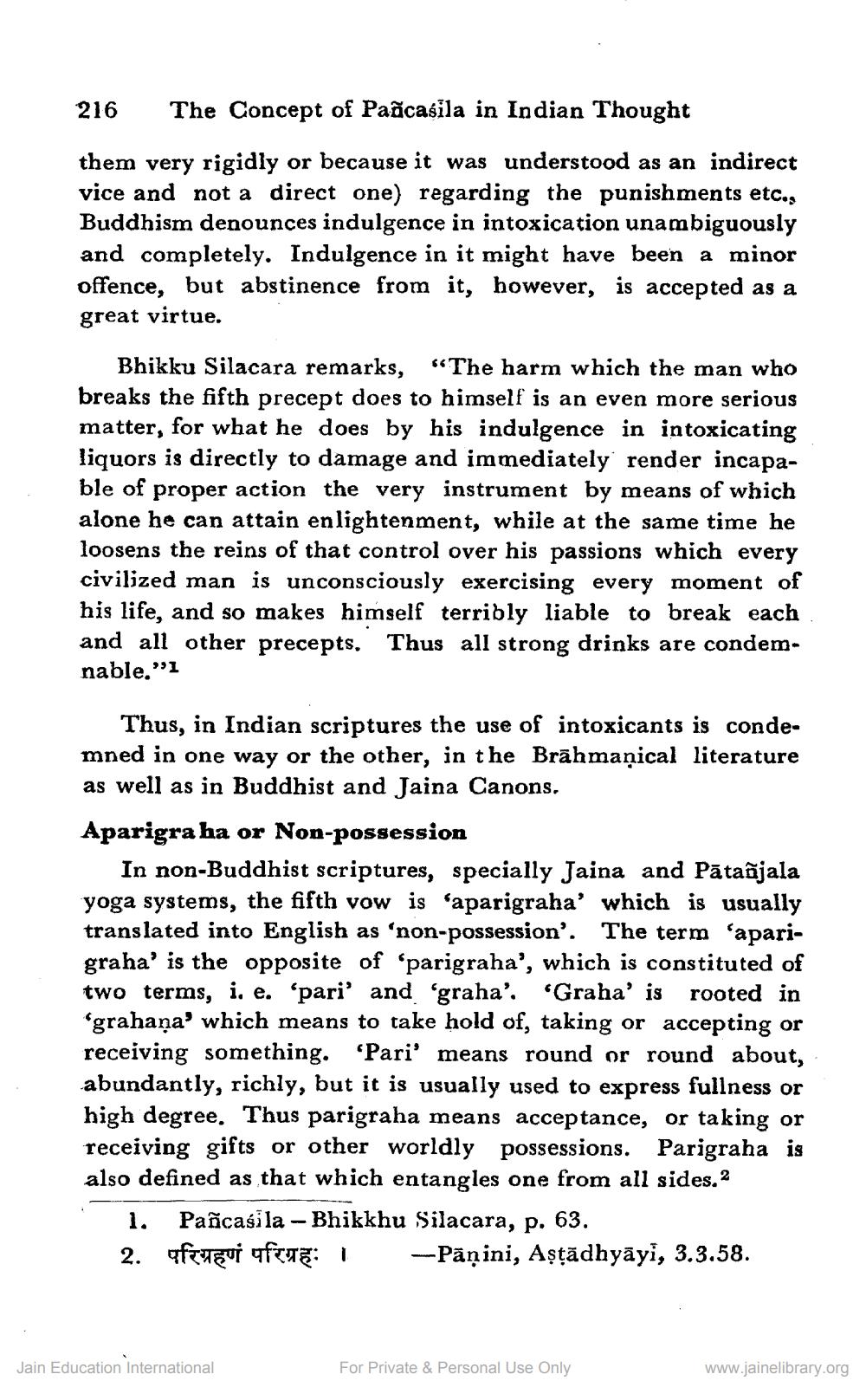________________
216
The Concept of Paācasila in Indian Thought
them very rigidly or because it was understood as an indirect vice and not a direct one) regarding the punishments etc., Buddhism denounces indulgence in intoxication unambiguously and completely. Indulgence in it might have been a minor offence, but abstinence from it, however, is accepted as a great virtue.
Bhikku Silacara remarks, “The harm which the man who breaks the fifth precept does to himself is an even more serious matter, for what he does by his indulgence in intoxicating liquors is directly to damage and immediately render incapable of proper action the very instrument by means of which alone he can attain enlightenment, while at the same time he loosens the reins of that control over his passions which every civilized man is unconsciously exercising every mom his life, and so makes himself terribly liable to break each and all other precepts. Thus all strong drinks are condemnable,"1
Thus, in Indian scriptures the use of intoxicants is condemned in one way or the other, in the Brāhmaṇical literature as well as in Buddhist and Jaina Canons, Aparigra ha or Non-possession
In non-Buddhist scriptures, specially Jaina and Pātaõjala yoga systems, the fifth vow is 'aparigraha' which is usually translated into English as 'non-possession'. The term 'aparigraha' is the opposite of ‘parigraha', which is constituted of two terms, i. e. 'pari' and 'graha'. "Graha' is rooted in 'grahaņa' which means to take hold of, taking or accepting or receiving something. 'Pari' means round or round about, abundantly, richly, but it is usually used to express fullness or high degree. Thus parigraha means acceptance, or taking or receiving gifts or other worldly possessions. Parigraha is also defined as that which entangles one from all sides.2
1. Pañcasila – Bhikkhu Silacara, p. 63. 2. oftFui ofna: 1 -Pāṇini, Aşțădhyāyi, 3.3.58.
Jain Education International
For Private & Personal Use Only
www.jainelibrary.org




